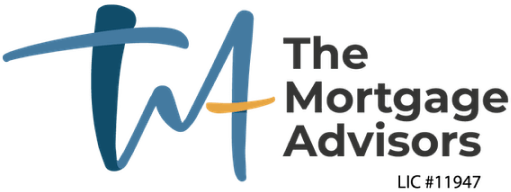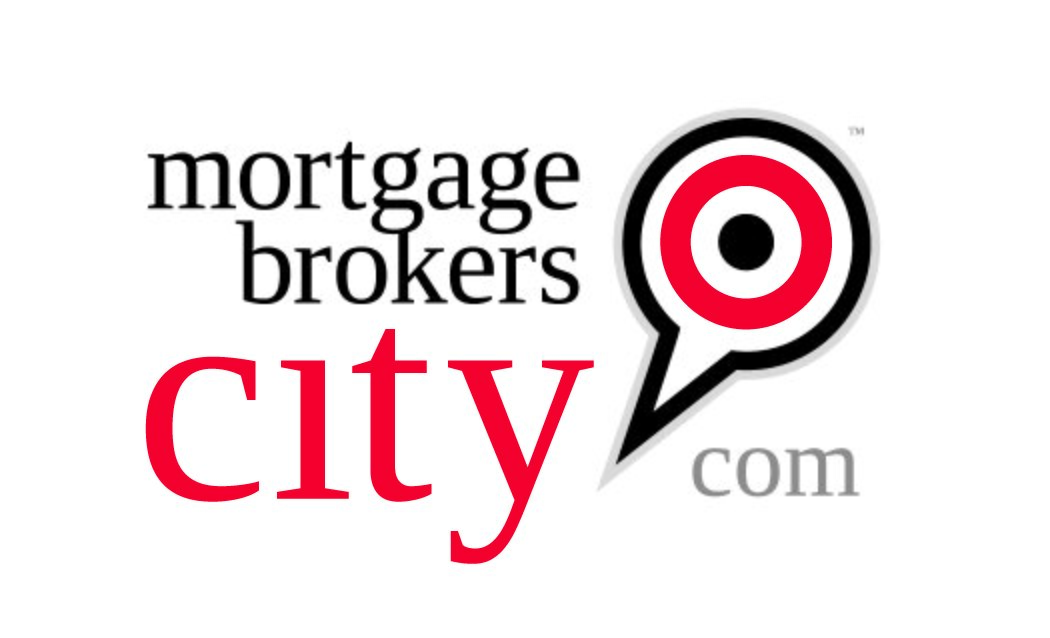Canada's Best Second Mortgage Rates
Homeowners can borrow against home equity with a second mortgage.
Canada's Best Mortgage Rates By Mortgage Term
Evaluate Canada’s best mortgage rates in one place. RATESDOTCA’s Rate Matrix lets you compare pricing for all key mortgage types and terms.
Rates are based on an average mortgage of $500,000 and subject to change based on filter criteria.
Updated 21:28 on Jul 16, 2025| Placeholder |
Insured
The rates in this column apply to borrowers who have purchased mortgage default insurance.
This is required when you purchase a home with less than a 20% down payment.
The home must be owner-occupied and the amortization must be 25 years or less.
|
80% LTV
The rates in this column apply to mortgage amounts between 65.01% and 80% of the property value. The home must be owner-occupied and have an amortization of 25 years or less. You must have purchased it for less than $1 million. These rates are not available on refinances. Refinances require "Uninsured" rates.
|
65% LTV
The rates in this column apply to mortgage amounts that are 65% of the property value or less. The home must be owner-occupied and have an amortization of 25 years or less. You must have purchased it for less than $1 million. These rates are not available on refinances. Refinances require "Uninsured" rates.
|
Uninsured
The rates in this column apply to purchases over $1 million, refinances and amortizations over 25 years. More info on the differences between insured and uninsured rates.
|
Bank Rate
Bank Rate is the mortgage interest rate posted by the big banks in Canada.
|
|---|---|---|---|---|---|
| 1-year fixed rate | 4.69% | 4.19% | 4.19% | 5.59% |
5.49%
|
| 2-years fixed rate | 4.04% | 3.89% | 3.89% | 4.54% |
4.79%
|
| 3-years fixed rate | 3.87% | 3.99% | 3.99% | 4.24% |
4.29%
|
| 4-years fixed rate | 3.99% | 3.99% | 3.99% | 4.44% |
4.39%
|
| 5-years fixed rate | 3.91% | 3.89% | 3.89% | 3.91% |
4.09%
|
| 7-years fixed rate | 4.39% | 4.24% | 4.24% | 5.19% |
5.00%
|
| 10-years fixed rate | 5.04% | 4.34% | 4.34% | 5.29% |
6.09%
|
| 3-years variable rate | 4.15% | 4.30% | 4.30% | 4.40% |
6.35%
|
| 5-years variable rate | 3.95% | 3.95% | 3.95% | 4.05% |
4.25%
|
| HELOC rate | N/A | N/A | N/A | N/A |
N/A
|
| Stress Test | 5.25% | 5.25% | 5.25% | 5.25% |
N/A
|
Today's Best Mortgage Rates in Canada
Evaluate Canada’s best mortgage rates in one place. You can compare the most current mortgage rates and monthly payments from 175+ banks and lenders across Canada.
Rates are based on an average mortgage of $500,000 and subject to change based on filter criteria.
| Lender
|
Insured
|
Insurable
|
Uninsured
|
|---|---|---|---|
|
MMG Mortgages
|
3.99%
$2,627.39 / month
|
4.19%
$2,681.85 / month
|
4.14%
$2,668.19 / month
|
|
Mortio Financial Corp
|
3.99%
$2,627.39 / month
|
4.24%
$2,695.56 / month
|
4.14%
$2,668.19 / month
|
|
Northwood Mortgage Ltd.
|
4.14%
$2,668.19 / month
|
4.24%
$2,695.56 / month
|
4.24%
$2,695.56 / month
|
|
Innovation Federal Credit Union
|
4.39%
$2,736.87 / month
|
4.39%
$2,736.87 / month
|
4.39%
$2,736.87 / month
|
|
True North Mortgage
|
2.99%
$2,363.66 / month
|
2.99%
$2,363.66 / month
|
2.99%
$2,363.66 / month
|
|
The Mortgage Advisors
|
3.87%
$2,594.98 / month
|
3.87%
$2,594.98 / month
|
3.87%
$2,594.98 / month
|
|
Nesto
|
3.91%
$2,605.76 / month
|
3.91%
$2,605.76 / month
|
3.91%
$2,605.76 / month
|
|
Hypotheca
|
3.94%
$2,613.86 / month
|
3.94%
$2,613.86 / month
|
3.94%
$2,613.86 / month
|
|
MortgagestoGo
|
3.94%
$2,613.86 / month
|
3.94%
$2,613.86 / month
|
3.94%
$2,613.86 / month
|
|
One Link Mortgage & Financial
|
3.95%
$2,616.57 / month
|
3.95%
$2,616.57 / month
|
3.95%
$2,616.57 / month
|
|
City Wide Financial Corp
|
3.99%
$2,627.39 / month
|
3.99%
$2,627.39 / month
|
3.99%
$2,627.39 / month
|
|
Mainstreet Credit Union
|
3.99%
$2,627.39 / month
|
3.99%
$2,627.39 / month
|
3.99%
$2,627.39 / month
|
|
Sudbury Credit Union
|
3.99%
$2,627.39 / month
|
3.99%
$2,627.39 / month
|
3.99%
$2,627.39 / month
|
|
Monster Mortgage
|
3.99%
$2,627.39 / month
|
3.99%
$2,627.39 / month
|
3.99%
$2,627.39 / month
|
|
Northern Birch Credit Union
|
3.99%
$2,627.39 / month
|
3.99%
$2,627.39 / month
|
3.99%
$2,627.39 / month
|
|
The Police Credit Union
|
3.99%
$2,627.39 / month
|
3.99%
$2,627.39 / month
|
3.99%
$2,627.39 / month
|
|
East Coast Mortgage Brokers
|
4%
$2,630.10 / month
|
4%
$2,630.10 / month
|
4%
$2,630.10 / month
|
|
Prospera Credit Union
|
4.04%
$2,640.95 / month
|
4.04%
$2,640.95 / month
|
4.04%
$2,640.95 / month
|
|
Mortgage Brokers City Inc
|
4.04%
$2,640.95 / month
|
4.04%
$2,640.95 / month
|
4.04%
$2,640.95 / month
|
|
First Credit Union
|
4.29%
$2,709.29 / month
|
4.29%
$2,709.29 / month
|
4.29%
$2,709.29 / month
|
|
First National Financial
|
4.34%
$2,723.07 / month
|
4.34%
$2,723.07 / month
|
4.34%
$2,723.07 / month
|
What is a second mortgage?
A second mortgage means taking out a second loan on a home or property that already has a mortgage.
It’s also referred to as a home equity loan. As you diligently make monthly mortgage payments, you build equity in your home.
A second mortgage allows homeowners to take out a loan and borrow against that equity, using your home as collateral.
It’s important to note that when you take out a second mortgage, you’ll be making payments on two mortgages: the primary mortgage, and the second mortgage.
If you stop making payments and default on both your first and second mortgages, you could lose possession of your home to the lender.
Frequently asked questions about second mortgages
Who should get a second mortgage?
There are a few reasons why homeowners may choose to get a second mortgage and borrow against their home equity. Second mortgage rates are higher than rates for primary mortgages, because lenders assume more risk with second mortgages. However, second mortgage rates are lower than other unsecured products such as credit cards or lines of credit. For this reason, second mortgages can be used to consolidate debt, pay off other loans, fund a down payment on another property, or just about anything else that requires a significant chunk of money.
There are other options for taking out a loan using the equity in your home, such as a home equity line of credit (HELOC) and refinancing (more on these options below). However, these options generally require a higher credit score. Second mortgages, on the other hand, are an option if you have a low credit score or a spotty credit history. However, you will be required to go to a private lender, also called a “B lender,” where you will pay higher interest rates.
How do I get a second mortgage?
Applying for a second mortgage is similar to the process of applying for a first mortgage. You’ll need to submit an application that verifies your identity with two pieces of government ID, plus documents that prove your income and employment, credit score and how much equity you have in your home. You’ll also need to provide details about the property itself, so the lender can verify its value. Whether you work directly with a lender or go through a broker, they’ll tell you exactly what documentation you need to provide.
How do I qualify for a second mortgage?
When you apply for a second mortgage, lenders want to be extra sure that you can afford to make payments on two mortgages. When considering your application for a second mortgage, lenders will look at the following:
- Equity: The more equity you have in your home, the better. Lenders will also look at any other assets you own. Most lenders want to see at least 15% to 20% equity.
- Income: Lenders want to be assured that you have steady employment and earn enough income to afford both your first and second mortgage payments.
- Credit score: Having a high credit score makes you a reliable borrower in the eyes of lenders. However, second mortgages may still be an option if you have a lower credit score because your home is secured as collateral.
How much can I borrow?
The amount you can borrow depends on how much equity you have in your home, and how much money you owe on your mortgage. In Canada, the maximum amount you can borrow for a second mortgage is up to 80% of your home’s appraised value, minus your mortgage balance.
For example, if your home is valued at $500,000, 80% of that amount is $400,000. If you have $250,000 left on your mortgage, you may be eligible to borrow up to $150,000.
When you take out a second mortgage in the form of a home equity loan, you’ll receive the funds as a one-time lump sum deposit. Just like your primary mortgage, you’ll be required to make repayments on a schedule set out in your second mortgage contract.
Which lenders provide second mortgage loans?
All major lenders in Canada offer options to borrow money using your home equity, whether it’s through a home equity loan, refinancing or a HELOC. Second mortgages can also be obtained through private lenders. Every lender will have its own terms and conditions around what you need to qualify, how much you can borrow and interest rates. Many lenders list their posted second mortgage interest rates on their websites.





























